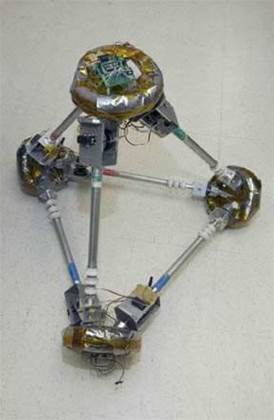
The University of Bath is to lead a project to use nanotechnology to create wireless chips, potentially boosting present processor speeds by 500 times.
Scientists at the university want to use microprocessors with magnets just a few atoms wide to move electrons around the chip, removing the resistance caused by physical wires.
Dr Alain Nogaret of Bath University’s department of physics says if present technology in computer processors is pushed too hard, the solid wire transistors in microchips become overwhelmed. "Signals in the chip get attenuated, which causes a major obstacle to processor power growth," he said.
"Using this technology we could make microprocessors reach speeds of up to one TeraHertz, 500 times faster than what is available."
Wireless chips would also be less vulnerable to manufacturing errors, which would reduce production costs, says Nogaret.
But Jim Tully, a semiconductor analyst at Gartner, is sceptical about the possibilities for wireless microprocessors.
"For this to work, I think you would need to build in a communications system. But that would require a massive overhead that would actually end up lowering net communications speed," he said.
"One way this might be useful is in future, when a chip contains many individual processors, it would provide the means for them to communicate. That would be very interesting."



.png&h=140&w=231&c=1&s=0)
_(36).jpg&h=140&w=231&c=1&s=0)





 iTnews Executive Retreat - Security Leaders Edition
iTnews Executive Retreat - Security Leaders Edition
 iTnews Cloud Covered Breakfast Summit
iTnews Cloud Covered Breakfast Summit
 The 2026 iAwards
The 2026 iAwards












_(1).jpg&h=140&w=231&c=1&s=0)



